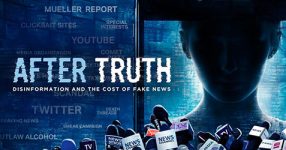The documentary “Shadows of Liberty” explores the intricate relationship between media, corporations, and democracy. It delves into the ways in which powerful entities, particularly large media corporations, shape public perception and control the flow of information. The documentary highlights instances where journalistic integrity has been compromised for corporate interests, raising concerns about the impact on democracy and freedom of information.
Media Control and Commercial Enterprises
The documentary begins by emphasizing the significance of information in shaping public understanding and discourse. It questions the control exerted by giant media corporations such as Time Warner, news corporation, and Disney, asserting that these entities determine what is considered newsworthy. The portrayal of news as a commercial enterprise reveals a critical perspective on the media landscape in America. The narrative contends that the public is inundated with celebrity stories, diverting attention from crucial issues like economics and the environment.
The documentary contends that this media landscape is designed to manipulate public perception, with a focus on positive stories and a lack of balance in reporting. Journalists speak out about the pressure they face to conform to these narratives, raising concerns about the impact on democracy and the public’s ability to make informed decisions.
Corporate Influence on Journalism and Suppression of Stories
The narrative takes a compelling turn as it presents real-life examples of journalists facing challenges when attempting to report on stories that could potentially harm corporate interests. The case of CBS Chief correspondent Roberta Baskin, investigating Nike’s labor practices in Vietnam, becomes a focal point. The documentary suggests that her report was suppressed due to corporate pressure, revealing the intricate dynamics between media organizations and advertisers.
The suppression of stories that might be critical of powerful corporations raises questions about the role of media in a democratic society. The documentary implies that corporate influence not only impacts the content presented to the public but also stifles investigative journalism that holds powerful entities accountable. This suppression, it argues, undermines the very foundation of a free press and, by extension, democracy.
The Evolution of Media and Political Interference
The documentary provides a historical perspective on the evolution of media in the United States, pointing to a shift that occurred during the Reagan era. It discusses how media consolidation, fueled by mergers and acquisitions, led to a concentration of power in the hands of a few large corporations. The consequences of this consolidation become evident as the documentary examines the media’s role in events such as the crack epidemic and the lead-up to the Iraq War.
The documentary suggests that media consolidation has allowed for political interference and manipulation, particularly during the Iraq War. It highlights instances where the media played a role in justifying the war, even in the absence of concrete evidence. The intertwining of media and political interests raises concerns about the accountability of the press and its responsibility to serve the public interest.
Challenges to Media Monopolies and the Future of Journalism
The latter part of the documentary explores challenges to media monopolies, particularly the role of the Federal Communications Commission (FCC) in regulating media ownership. Despite public opposition to media consolidation, the FCC’s decisions have often aligned with the interests of large corporations. The documentary portrays a struggle between concerned citizens and media giants, emphasizing the need for a diverse and competitive media landscape.
As the documentary concludes, it urges viewers to recognize the crisis in contemporary media and to actively engage in the fight for a better media landscape. It suggests that the quality of media is a societal issue and calls for collective efforts to ensure a more transparent, accountable, and democratic media system. The critical battles faced by the media, as depicted in “Shadows of Liberty”, prompt reflection on the role of media in shaping the future of democracy.












